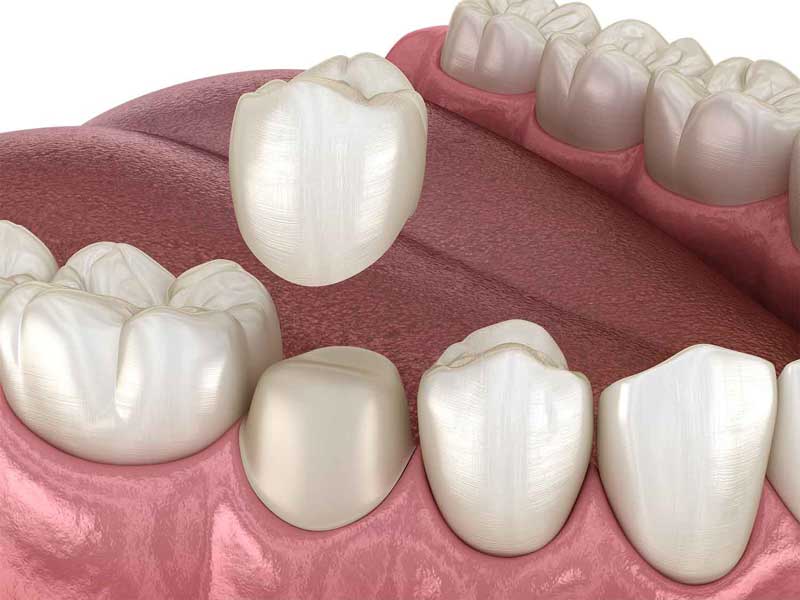Keep Your Dental Crown Safe for a Long Time
You already know how good it feels to have a dental crown put on. Your tooth feels stronger, it's easier to chew, and your smile looks complete again. But crowns don’t last forever without care. Think of them as an investment — with the right care, a crown can stay in great shape for more than ten years. Without care, it might fail much sooner.
This article covers how to keep your dental crown in good shape, including brushing, foods to avoid, and common mistakes to prevent.
Why It's Important to Take Care of a Crown
Crowns are made from strong materials like porcelain, zirconia, or gold, but they aren’t unbreakable. Everyday habits can damage them or the tooth underneath.
- Chewing ice or hard objects can crack the crown.
- Teeth grinding at night puts pressure on it.
- Skipping flossing can lead to decay around the crown edges.
Even though a crown covers your tooth, the natural structure underneath is still at risk of gum disease or decay. Protecting the crown helps keep the tooth healthy too.
Daily Care Tips for Crowns
- Brush gently but thoroughly: Use a soft-bristled toothbrush and fluoride toothpaste twice a day. Avoid abrasive toothpaste that can scratch porcelain.
- Floss carefully: Don’t snap floss between teeth. Slide it in and out gently. Water flossers or floss threaders can help if needed.
- Rinse daily: An antimicrobial mouthwash adds extra protection against plaque and gum irritation.
Things You Do Every Day That Can Break a Crown
- Chewing hard objects like ice, pencils, or hard candies
- Sticky foods such as caramel and taffy that can pull on crowns
- Staining drinks like coffee, tea, and red wine
- Teeth grinding at night (a night guard can help)
- Biting nails or opening packages with teeth
When to Call the Dentist
Crowns usually don’t break suddenly — they show warning signs first. Watch out for:
- Sensitivity when biting or drinking hot/cold beverages
- A crown that feels loose or doesn’t fit properly
- Visible cracks or chips
- Gum recession around the crown
If you notice these, visit your dentist quickly. Fixing issues early can save your crown and money.
What Regular Checkups Do
Even if your crown feels fine, regular checkups are essential. Dentists check crown edges, gum health, and the tooth underneath. X-rays can detect hidden decay. Generally, visit your dentist twice a year — or more if you grind your teeth or have gum disease.
Different Crown Materials, Different Care?
- Porcelain or ceramic: Natural look but prone to chipping — avoid very hard foods.
- Porcelain-fused-to-metal: Strong but the porcelain layer may wear over time.
- Gold: Very durable and gentle on nearby teeth but less common now.
- Zirconia: Strong, durable, and increasingly popular.
No matter the material, brushing, flossing, and regular dental visits are a must.
Questions and Answers About Caring for Dental Crowns
- How long should a crown stay in place? 10–15 years on average, but many last decades with good care.
- Do crowns rot? No, but the tooth underneath can. That’s why brushing and flossing are vital.
- Do whitening treatments affect crowns? No, whitening doesn’t change crown color. If discoloration is an issue, replacement may be needed.
- What if my crown feels loose? Don’t try to fix it yourself. Call your dentist immediately.
The Lesson
A dental crown restores function and appearance, but it needs care. Daily cleaning, mindful eating, and routine checkups can extend a crown’s life from just a few years to decades.
Are You Ready to Keep Your Smile Safe?
If you already have a crown or think you might need one, the best step is to book a dental appointment. Your dentist can check the crown, catch problems early, and give tailored care advice.
📞 Please call today to set up your visit. Take care of your crown and keep your smile strong for years to come.

 (425) 549-4649
(425) 549-4649










